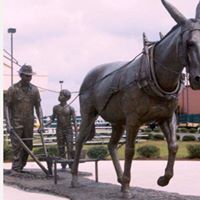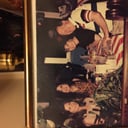"I to the world am like a drop of water that in the ocean seeks another drop" comes from which play by William Shakespeare?
This quote is part of the reply in Act I, scene two by Antipholus of Syracuse to a comment made by the First Merchant in Shakespeare's play, The Comedy of Errors. The full reply is: "I to the world am like a drop of water that in the ocean seeks another drop, who, falling there to find his fellow forth, unseen, inquisitive, confounds himself: so I, to find a mother and a brother, in quest of them, unhappy, lose myself."
The play's focus is concerned with the fact that many of the characters have to struggle to find an identity. They have to work to recognize and establish their own identities and to establish relationships with and understand the personalities of others around them. They experience some degree of success, but their vision of one another is hampered by a lack of self-knowledge and personal insecurities.
The characters who most exemplify the blindness to the people around them are Egeon, Antipholus and Dromio. They misinterpret the actions and words of others around them. Antipholus is willing to accept any explanation but the true one, the one which should obvious. He is unable to see what is clear to others. He believes his quest to find his family is futile; he carries around prejudices about the people of Ephesus; and third, he has failed to grapple with his own identity as an identical twin.
Undeniably, Antipholus lack faith is a result of five years of searching for his entire family. So, can it be said that this is all about human nature?
More Info:
nfs.sparknotes.com



